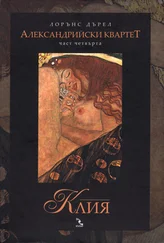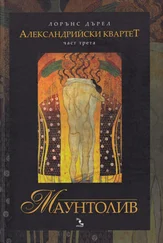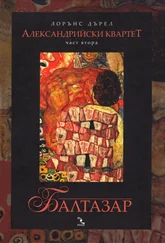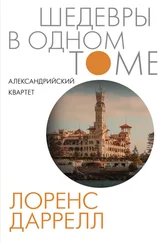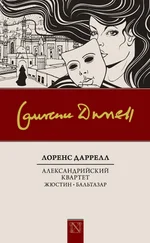Лоренс Даррелл - Prospero's Cell
Здесь есть возможность читать онлайн «Лоренс Даррелл - Prospero's Cell» весь текст электронной книги совершенно бесплатно (целиком полную версию без сокращений). В некоторых случаях можно слушать аудио, скачать через торрент в формате fb2 и присутствует краткое содержание. Жанр: Проза, на английском языке. Описание произведения, (предисловие) а так же отзывы посетителей доступны на портале библиотеки ЛибКат.
- Название:Prospero's Cell
- Автор:
- Жанр:
- Год:неизвестен
- ISBN:нет данных
- Рейтинг книги:4 / 5. Голосов: 2
-
Избранное:Добавить в избранное
- Отзывы:
-
Ваша оценка:
- 80
- 1
- 2
- 3
- 4
- 5
Prospero's Cell: краткое содержание, описание и аннотация
Предлагаем к чтению аннотацию, описание, краткое содержание или предисловие (зависит от того, что написал сам автор книги «Prospero's Cell»). Если вы не нашли необходимую информацию о книге — напишите в комментариях, мы постараемся отыскать её.
Prospero's Cell — читать онлайн бесплатно полную книгу (весь текст) целиком
Ниже представлен текст книги, разбитый по страницам. Система сохранения места последней прочитанной страницы, позволяет с удобством читать онлайн бесплатно книгу «Prospero's Cell», без необходимости каждый раз заново искать на чём Вы остановились. Поставьте закладку, и сможете в любой момент перейти на страницу, на которой закончили чтение.
Интервал:
Закладка:
We do not speak now, but proceed slowly along the edge of the lagoon in silence, surveying the haunted underworld which seems so like a panorama of the moon's surface. We stop where the figtrees overhang and he tells me to look down. I can see nothing. Gingerly he lowers the trident and strikes; it is buried in a small white shape which begins to flutter madly. The small frightened eyes of the squid. As it breaks surface it spits a mouthful of ink over his face and arms and begins to wheeze like a sick kitten. Cursing softly and laughing he scrapes it off the trident against the gunwale and lets it drop into the basket where the contact of its fluttering hardly dead body suddenly rouses the stiffened body of the Scorpion to a small fluttering gasp of life. The air is cold tonight, and the sudden chill is fruitful, for within an hour we have several squid and two unnameable white fish besides the scorpion.
Anchored in a tiny bay we smoke a cigarette and Anastasius breaks off a piece of dry bread in his teeth. The air makes one hungry. The lamp is guttering and he charges it again with rock carbide. Once more the underworld flares into bloom. It is time, says Anastasius, for us to land an octopus, and to this end he ships the tridents and lets down his hooked staff, with its floating decoy of parsley training dispiritedly from it. He begins probing gently under rocks, turning this way and that. From the darkness of the cliff-edge above us a fir-cone falls with a little plop into the water. 'Look,' says Anastasius suddenly between his teeth, and I lean down. From under a rock, lazily moving, is something which looks like a snake. He is touching it very gently with the sprig of parsley, flirting with it. The tentacle plays softly with the leaves and is joined coyly by a second tentacle: then a third. They make playful passes at the sprig of green which conceals the waiting hook. Presently the ugly gas-mask head of the octopus comes into view, peering with moronic concentration at the decoy. And the moment has come. Anastasius slips the hook under the hood and tugs. There is a sudden strain and convulsion. The tentacles of the beast become rigid, but it is too late. Up it comes, writhing and grovelling, carrying two small boulders in its paws which it drops into the boat with a tremendous clatter, alarming us both. He now grips it firmly, and the hideous thing wraps itself round his arm, fighting back strongly. His object is to find the critical central bone, and he gives a sudden movement of the wrists, turning the hood inside out and plunging his teeth into a certain place in order to break it. A convulsion, and the whole mechanism seems to falter and fall to pieces. The tentacles still frantically suck and writhe, but they are now attached to a paralysed and shattered brain which gives them no directions for escape. Thrown dully to the bottom of the boat, they suck along the wood with the dull tearing noise that medical tape makes when it is being torn from human flesh.
Anastasius laughs softly and washes his hands in sea-water to dry them on the edge of his coat. A fish is a fish, but squid and octopus are a delicacy for him.
We take up the hunt in a desultory way and I manage, under his tuition, to spear yet another squid, and to miss a red mullet.
It is past midnight, and a small wind has sprung up, forcing us to use more and more olive oil to still the surface. We retrace our path slowly indulging in afterthoughts: looking under rocks which we have missed, and probing the larger caves in the hope of rousing an eel. Soon we are back at the davits, slinging the boat. Helen is there to meet us with bread and wine. I lend her my torch and she exclaims proudly over the catch in the happy vein of a person whose lunch and dinner for the morrow has been provided for.
By now a thin slice of moon is up, and early morning winds are beginning to curl up and lie on the surface of the water for a minute at a time before disappearing. The cypresses stretch for a moment from their romance stillness, like tired and cramped human models. I pause irresolute at the still edge of the bay, wondering whether the water is too cold for a bathe. The taste of the Greek cigarette is light and heady.
To-morrow I am to be instructed in the art of fishing with the shoulder net — called [Greek]. This has a span of about six feet, and is loaded at the edge with lead. It is carried folded in a certain way on the left shoulder and is used to trap fish in shallow water. The throwing of it demands a special skill.
And so, confused by these shallow veins of thought, to the balcony and the bedroom. The Van Norden lies at anchor twenty feet from the house, her tall spars rigid and consciously beautiful on the lacquer of the sea.
Sleep, in this cool, still room, is like entering a cave.
10.8.37
The Albanian smuggler has been over again from the Forty Saints. He is a fierce old ruffian, evil of manner and with no sense of humour. In his great sack he brought tobacco leaf, which we are buying for next to nothing. Anastasius teaches me how to strip each leaf of veins and lay them one on top of the other. Then we put them out to dry for a while, and finally to rest in the great magazine with its dry musty air and its rows of tomatoes drying on strings. Here after a while we roll and press the leaf and cut it finely with a razor blade. It is probably the coolest and richest pipe tobacco in the world, pure leaf and heavy. Anastasius loads his own cigarettes with it.
11.8.37
Took the Van Norden up in the direction of the Forty Saints in a strong western wind, but became totally becalmed in the lea of the headland, and lay off the Stephano lighthouse, watching a party refuel the lamp. It was strange to lie in this well of still water while not more than two hundred yards off the wind crisped the sea, and the air was wild with herring gulls. One of the lighthouse men tried to engage us in amiable conversation but at that range we could not understand a word he said, so we had to be content to wave to each other.
Zarian and his wife had arrived when we got back for tea, to stay a couple of days. Zarian says he has read somewhere that Nelson once drafted a plan to take the Old Fort (considered impregnable in his time) by running a frigate aground by the seawall, and boarding her from the masts. From every point of view a bad plan for there is a sea ramp which would have grounded the ship before her boarding crews were within reach of the lower battlements.
A letter from Zarian's wife in the south of the island.
'. . You say I am your cruellest critic. I have been afraid when you seemed about to submit the island to the contamination of “fine writing”—but I need not have been. You will never touch it, my dear boy. Has the chapter upon Corcyra's perpetual spring been finished? I had it so much in mind that this walk southward with Theodore and the child has been like wandering through your book ahead of you. But how can you do it — how can anybody? There is as you say, no sense of season for the small ones. I have thrown away my paint box. Soon you will be throwing away your typewriter. All the summer children like iris and anemone, are out again — glades of them falling away to the White Cape, revived by the first autumn rains. Here it is your own underworld. My sketchbooks are fuller of notes than any Theodore could make it: speedwell, iris stylosa (?), marigolds, cranesbill, buttercup and pimpernel. Even the beady blue drops of grape hyacinth — how?
'You should do a sort of ballet of fruits and flowers; chorus the rough blue of sea, the staple olive-tone washed in rotation by the wild pearfoam, and the lands under Spartila by peachmist and asphodelcloud. It is too much. Mist of plum, pear, almond.
'Now we camped for the night in an orchard where nespoles in golden knots — but why go on? You must come and see for yourself. Utterly silent and out of prehistory lay a little olive grove shelving into the sea on a beach carpeted with brown dry seaweed. We have been cooking from a friendly cottage with an earth floor, the garden of it crammed with wistaria, carnation and stockdrunk-making and rich.
Читать дальшеИнтервал:
Закладка:
Похожие книги на «Prospero's Cell»
Представляем Вашему вниманию похожие книги на «Prospero's Cell» списком для выбора. Мы отобрали схожую по названию и смыслу литературу в надежде предоставить читателям больше вариантов отыскать новые, интересные, ещё непрочитанные произведения.
Обсуждение, отзывы о книге «Prospero's Cell» и просто собственные мнения читателей. Оставьте ваши комментарии, напишите, что Вы думаете о произведении, его смысле или главных героях. Укажите что конкретно понравилось, а что нет, и почему Вы так считаете.


